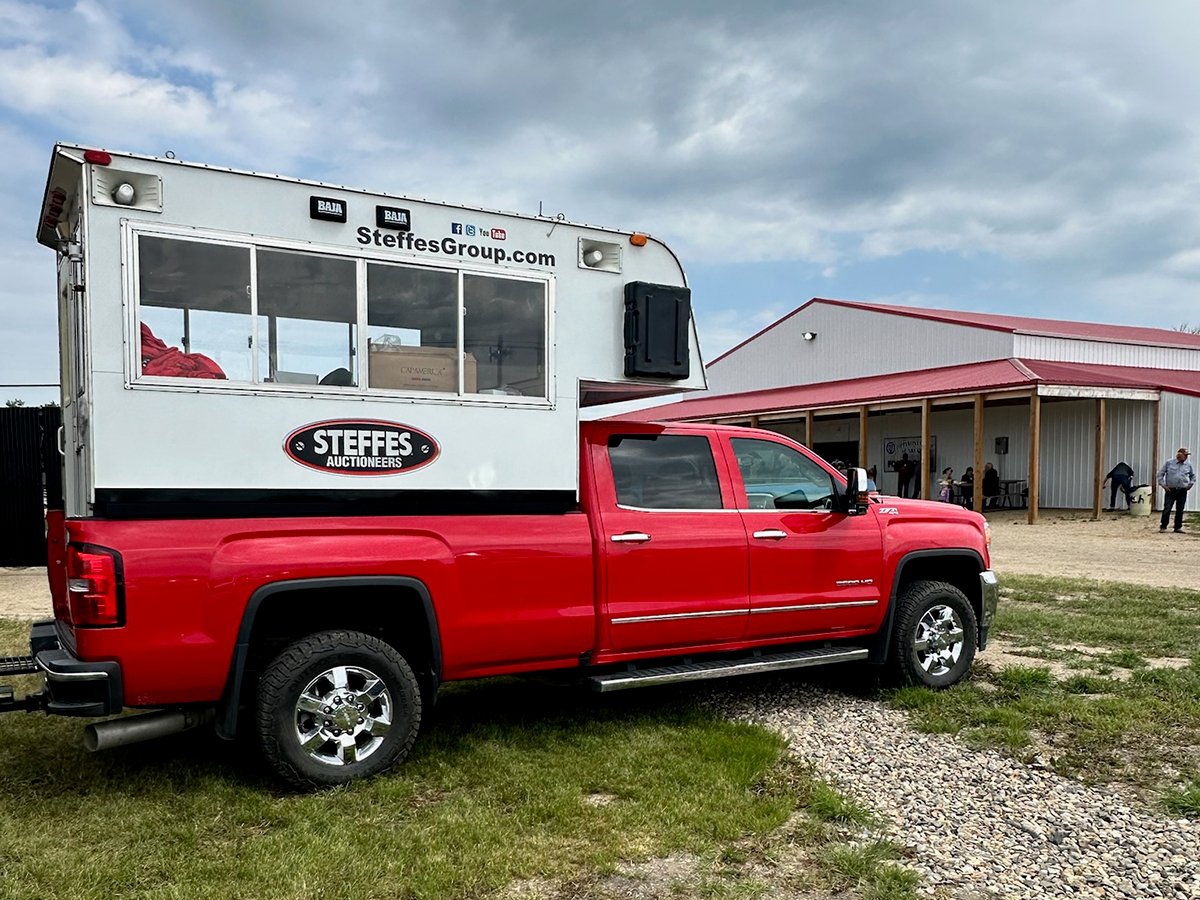LAST SUNDAY I sat with hundreds at Prairieland Park in Saskatoon as we celebrated Father Andre Poilievre’s reception of the Order of Canada.
Former gang members told how Father Andre adopted them into his own gang of young men and women, helping them work together to quit addictions, find jobs and build families.
Several said his mentoring saved them. And his work inspired the founding of a new group called Str8t-up, an alternative to violent gangs.
This morning I became aware of another gang leader, Garry Forrest. Garry’s gang works on the Riverbend prison farm near Prince Albert, Sask.
Read Also

Farm auctions evolve with the times
Times have changed. The number of live, on-farm auctions is seeing a drastic decline in recent years. Today’s younger farmers may actually never experience going to one.
One member, Don MacGregor, writes in the Prince Albert Herald, “The farm has saved my life. . . I worked for the best guy in the world, Garry Forrest. Garry taught me how to work, how to listen and most importantly, how to respect others.
“Garry gave me self-pride and self-worth, something not easily instilled in a career criminal.”
He adds, “I had to learn some valuable lessons, from fence building to equipment operation to calf pulling. . . .Twenty years ago I took a life. Now I have been involved with giving life.”
We humans are hard-wired for gang membership. We long to belong. We may call the gangs families, baseball teams, congregations or business staff. But very few live without a gang of some kind or another.
That’s easy to forget. Our bureaucratic society often acts as though Canada’s problems can be fixed with a tune-up to the “system.”
The Saskatchewan government has just finished a study with recommendations for correcting its correctional system.
Those studies are useful but they carry an underlying assumption that Canadian society is a kind of machine that can be improved by rewiring or by re-writing the operator’s manual.
They focus on improving rules and regulations. Unfortunately “law” and “order” aren’t as closely related as they imply.
Good laws help, of course. But a community’s well-being isn’t ultimately lodged in a law library.
Its health is in its gangs, in the social groups that shape our lives.
And what sets gangs apart is their leadership. Good gangs grow around people-builders – leaders who put in hard time face-to-face, patiently doing the demanding work of mentoring, cajoling, modeling and constructing healthy relationships.
Good gangs are grown by people like Father Andre, Garry Forrest and Str8-up. They’re cared for by the staff at the Saskatoon Correctional Centre and by the Micah Mission volunteers who build long-term relationships with inmates and ex-convicts.
One Micah Mission member told me that the sex offenders in his “circle of accountability” say their most powerful deterrent to reoffending is that they don’t want to let down these folks who’ve become their friends.
So gangs matter. A lot.
If we want a society that is healthy and secure, let’s be intentional about producing “good gang” leaders.
People like Garry and Andre aren’t accidents of nature. Most grow out of a good gang. They’ve been mentored, equipped, and called to their leadership – by God, by us.
God give us more of them, and the courage to work with them.
What we’ve long suspected has been proven true via results from a mid-October cross-Canada survey.
Vital Signs 2009, a national public opinion survey on community quality of life, concluded that people who live in small towns are happier than people who live in cities. At least they rate themselves as happier, which must be the same thing.
According to Environics Research Group, “almost nine in 10 Canadians consider the quality of life in their community to be good, if not excellent.”
Further, “excellent ratings are most common among residents of rural communities (less than 5,000 people), compared to those living in cities of 100,000 or more.”
Some 47 percent of British Columbians rated their quality of life as excellent and in Alberta and Saskatchewan, 41 percent gave that rating.
Manitoba had the lowest percentage in Canada at the excellence level, at 28 percent.
The survey didn’t tally the life satisfaction of the really rural folks, the farmers. But data on life satisfaction in small towns likely comes as no surprise to them or to small-town prairie dwellers. Small towns are among the friendliest places on earth.
According to the survey, physical environment plays a huge role in quality of life regardless of location, and there’s plenty of fresh air and green space in and around prairie towns.
Second on the scale of importance is a positive social atmosphere, commonly exhibited at events such as the annual fowl supper, curling bonspiel and rodeo, not to mention visits to the post office that stretch into hours via chats with the neighbours.
There are many jokes surrounding small town life and they’re funny because they’re true. Here’s a sampling from the internet:
You know you’re from a small town when…
n The best burgers in town are at the rink.
n You or your friends have taken a horse or a dog to school.
n You’ve been to parties in a pasture, a barn and in the middle of a dirt road.
n It’s normal to see an old man going through town on a riding lawnmower.
n You measure distance in hours.
n You call a wrong number and they supply you with the right one.
n The New Year’s baby is born in March.
On another note, the Oct. 15 column in this space mentioned a recently posted research paper on Violet McNaughton, the Western Producer’s first women’s editor and a fighter for prairie women’s rights.
We’ve obtained access to the website for readers and it is available until Nov. 30. Go to http://wass.alexanderstreet.com. User name is western and password is producer.














